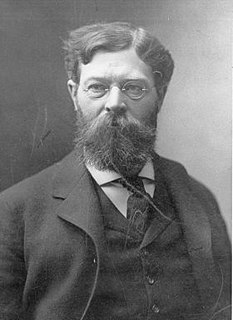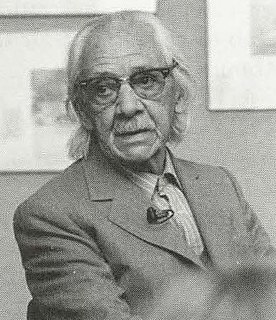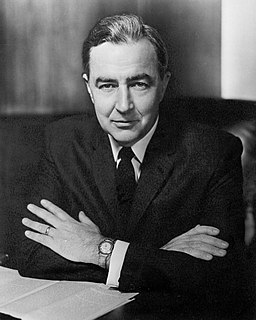Top 603 Norman Conquest Quotes & Sayings - Page 9
Explore popular Norman Conquest quotes.
Last updated on April 19, 2025.
It was with the Industrial Revolution, as society plunged ever more eagerly into the conquest of material riches and bent all its energies to the accumulation of goods, that material poverty became a major problem. Obviously, this meant abandonment or downgrading of spiritual values, virtue, etc. To share or not to share in the increase of the collective wealth-this was the Number One question. It was the desire to acquire wealth that prompted the poor to start fighting.
If you create and market a product or service through a business that is in alignment with your personality, capitalizes on your history, incorporates your experiences, harnesses your talents, optimizes your strengths, complements your weaknesses, honors your life's purpose, and moves you towards the conquest of your own fears, there is ABSOLUTELY NO WAY that anyone in this or any other universe can offer the same value that you do!
The health benefits, both mental and physical, of humor are well documented. A good laugh can diffuse tension, relieve stress, and release endorphins into your system, which act as a natural mood elevator. In Norman Cousin's book, Anatomy of an Illness, Cousin's describes the regimen he followed to overcome a serious debilitating disease he was suffering from. It included large doses of laughter and humor. Published in 1976, his book has been widely accepted by the medical community.
We do this in order to slow down aggression. We do this to increase the confidence of the brave people of South Vietnam who have bravely born this brutal battle for so many years with so many casualties. And we do this to convince the leaders of North Vietnam-and all who seek to share their conquest-of a simple fact: We will not be defeated. We will not grow tired. We will not withdraw either openly or under the cloak of a meaningless agreement.
Capitalism drives the employers to do their worst to the employed, and the employed to do the least for them. And it boasts all the time of the incentive it provides to both to do their best! . . . The reason the Capitalist system has worked so far without jamming for more than a few months at a time, and then only in places, is that it has not yet succeeded in making a conquest of human nature so complete that everybody acts on strictly business principles.
Because the Nazi venom worked its way even into our thoughts, every accurate thought was a conquest; because an all-powerful police sought to force us into silence every word became as precious as a declaration of principle; because we were persecuted, each of our gestures carried the weight of a commitment.
Men of strong minds and who think for themselves, should not be discouraged on finding occasionally that some of their best ideas have been anticipated by former writers; they will neither anathematize others nor despair themselves. They will rather go on discovering things before discovered, until they are rewarded with a land hitherto unknown, an empire indisputably their own, both right of conquest and of discovery.
Frankly, I do not like the idea of conversations to define the term "unconditional surrender."The German people can have dinned into their ears what I said in my Christmas Eve speech--in effect, that we have no thought of destroying the German people and that we want them to live through the generations like other European peoples on condition, of course, that they get rid of their present philosophy of conquest.
People are the common denominator of progress. So no improvement is possible with unimproved people, and advance is certain when people are liberated and educated. It would be wrong to dismiss the importance of roads, railroads, power plants, mills,and the other familiar furniture of economic development. But we are coming to realize that there is a certain sterility in economic monuments that stand alone in a sea of illiteracy. Conquest of illiteracy comes first.
What John Marshall says is that right of occupancy can be taken away by purchase, conquest or any other means. So the reason that this case Johnson v. M'Intosh is so important is it really sets the foundation for this radical approach to understanding the basic human rights of Indian people to hold and control the lands that they occupy. It gives the US government the right to relocate, it stands at the bottom of the ethnic cleansing campaigns, for example, in the removal era.
It was not until after the coming of Christ that time and humans could breathe freely. It was not until after him that people began to live toward the future. Humans do not die in a ditch like a dog-but at home in history, while the work toward the conquest of death is in full swing; they die sharing in this work.
Institutionalized desublimation thus appears to be an aspect of the "conquest of transcendence" achieved by the one-dimensional society. Just as this society tends to reduce, and even absorb opposition (the qualitative difference!) in the realm of politics and higher culture, so it does in the instinctual sphere. The result is the atrophy of the mental organs for grasping the contradictions and the alternatives and, in the one remaining dimension of technological rationality, the Happy Consciousness comes to prevail.
I never met your likeness. Jane: you please me, and you master me - you seem to submit, and I like the sense of pliancy you impart; and while I am twining the soft, silken skein round my finger, it sends a thrill up my arm to my heart. I am influenced - conquered; and the influence is sweeter than I can express; and the conquest I undergo has a witchery beyond any triumph _I_ can win.
The good news is that there is strong movement in this direction of shifting from domination systems to partnership systems. Over the past several hundred years, one progressive movement after another has challenged traditions of domination - from the 18th century "rights of man" movement challenging the "divinely ordained right" of kings to rule their "subjects" to today's environmental movement challenging the once hallowed "conquest of nature."
Every time somebody writes a theory about where literature's going, that person is not only contributing thought but nudging things to happen in one way or the other. Just as in painting, there's much more interest in the American scene painters and the early American... like the Ashcan school of painters. Who would have thought, 50 years ago, that Norman Rockwell would again be considered a serious painter? And yet, there are a lot of people who are saying Rockwell was a very accomplished technician. These things are constantly moving.
Unsatisfied desire is the characteristic feature of human life. That is the common fact out of which both pessimism and optimism are constructed. Dwell on the impossibility of ever getting a state of complete and permanent satisfaction with what you have, and you become a pessimist. Dwell on the opportunity for endless growth and conquest which this same fact makes possible, and you become an optimist.
The Devil is perfectly willing that the church should multiply its organizations and its deftly contrived machinery for the conquest of the world for Christ, if it will only give up praying...The Devil is not afraid of machinery; he is only afraid of God. And machinery without prayer is machinery without God.
It is a conquest when we can lift ourselves above the annoyances of circumstances over which we have no control; but it is a greater victory when we can make those circumstances our helpers,--when we can appreciate the good there is in them. It has often seemed to me as if Life stood beside me, looking me in the face, and saying, "Child, you must learn to like me in the form in which you see me, before I can offer myself to you in any other aspect.
The men of Normandy had faith that what they were doing was right, faith that they fought for all humanity, faith that a just God would grant them mercy on this beachhead or the next. It was the deep knowledge - and pray God we have not lost it - that there is a profound moral difference between the use of force for liberation and the use of force for conquest.
Women as a class have never subjugated another group; we have never marched off to wars of conquest in the name of the fatherland. We have never been involved in a decision to annex the territory of a neighboring country, or to fight for foreign markets on distant shores. These are the games men play, not us. We want to be neither oppressors nor oppressed. The women's revolution is the final revolution of them all.
Major Richard Bong was an example of the tragic and terrible price we must pay to maintain principles of human rights, of greater value than life itself. This gallant Air Force hero will be remembered because he made his final contribution to aviation in the dangerous role of test pilot of an untried experimental plane, a deed that places him among the stout-hearted pioneers who gave their lives in the conquest of sky and space.
Before the Conquest all art was of the people, and popular art has never ceased to exist in Mexico. The art called popular is fugitive in character, with less of the impersonal and intellectual characteristics of the schools. It is the work of talent nourished by personal experience and that of the community - rather than being taken from the experiences of painters in other times and other cultures.
The point of view foreigners will have of the film The Conquest isn't the same as the French public. What will interest American and international audiences is the love story between Nicolas and Cecelia that's a metaphor of today's occidental couple, namely the women in the shadows who carry their husbands into the spotlight, but the man is so absorbed with work so the woman leaves him for another man.
At birth, the child leaves a person - his mother's womb - and this makes him independent of her bodily functions. The baby is next endowed with an urge, or need, to face the out world and to absorb it. We might say that he is born with 'the psychology of world conquest.' By absorbing what he finds about him, he forms his own personality.
A chef is a chef, a cook is a cook; a lorry driver is a lorry driver and a designer is a designer. I've never heard anyone say that Philippe Starck is a chef. The important thing is dialogue. If I said to Norman Foster that he was a chef he'd say "No", but he might have a dialogue with chefs. People have said to me for many years that I'm not a chef and that I'm an artist instead, but I always say, "No, I'm a chef." I just have dialogues with designers.
They tell us that we live in a great free republic; that our institutions are democratic; that we are a free and self-governing people. That is too much, even for a joke. ... Wars throughout history have been waged for conquest and plunder... And that is war in a nutshell. The master class has always declared the wars; the subject class has always fought the battles.
The whole ecosystem of celebrity has broken down for writers. If you go back to the '50s, '60s, and '70s, writers were on TV a lot, and they were allowed to misbehave a lot. Truman Capote was a pop figure, but it wasn't until he went on David Susskind's show and had that extraordinary voice and manner that everyone could imitate, that he really took off as a figure. Norman Mailer and Vidal, the same thing. The bestselling writers now, there's no great animal energy with them.
There's something deeply rooted in American culture. You can pretty much identify what it was. You take a look at the history. It was internal conquest. You had to defend yourself against what the Declaration of Independence, Thomas Jefferson, an enlightened figure, called the attacks of the "merciless Indian savages," whose known way of warfare was torture and destruction. Also you had a slave population, you had to protect yourself against them. You needed guns.
I am making this statement as an act of wilful defiance of military authority, because I believe that the War is being deliberately prolonged by those who have the power to end it. I am a soldier, convinced that I am acting on behalf of soldiers. I believe that this War, on which I entered as a war of defence and liberation, has now become a war of aggression and conquest.
The fatal error of much science fiction has been to subscribe to an optimism based on the idea that revolution, or a new gimmick, or a bunch of strong men, or an invasion of aliens, or the conquest of other planets, or the annihilation of half the world--in short, pretty nearly anything but the facing up to the integral and irredeemable nature of mankind--can bring about utopian situations. It is the old error of the externalization of evil.
Marriage, which has been the bourne of so many narratives, is still a great beginning, as it was to Adam and Eve, who kept their honey-moon in Eden, but had their first little one among the thorns and thistles of the wilderness. It is still the beginning of the home epic - the gradual conquest or irremediable loss of that complete union which make the advancing years a climax, and age the harvest of sweet memories in common.
Joy is sometimes a blessing, but it is often a conquest. Our magic moment help us to change and sends us off in search of our dreams. Yes, we are going to suffer, we will have difficult times, and we will experience many disappointments — but all of this is transitory it leaves no permanent mark. And one day we will look back with pride and faith at the journey we have taken.
The laws of war, that restrain the exercise of national rapine and murder, are founded on two principles of substantial interest: the knowledge of the permanent benefits which may be obtained by a moderate use of conquest, and a just apprehension lest the desolation which we inflict on the enemy's country may be retaliated on our own. But these considerations of hope and fear are almost unknown in the pastoral state of nations.
There are two ways that you can gain territory from another group. One is by conquest. That's essentially the way we took California from Mexico and... Texas as well. But what's going on now may end up being a kind of recolonization of the Southwest, because the other way you can regain territory is by population infiltration and demographic dominance.... The United States will be faced with the problem that Canada has been faced with... and which our system is not prepared to accommodate.
Running is the classical road to self-consciousn ess, self-awareness and self-reliance. Independence is the outstanding characteristic of a runner. He learns the harsh reality of his physical and spiritual limitations when he runs. He learns that personal commitment, sacrifice and determination are his only means to betterment. Runners get promoted only through self-conquest.
It was an easy decision for me which books to self-publish as ebooks. I got the rights back to two Avon books that I wrote at the start of my career. I paid to have these two books, 'Bold Conquest' and 'Wild Hearts,' scanned. When I got them back as documents, I had to clean them up and correct all the typos, etc.
Meditation is the technique of inner conquest - and that is the real challenge. Those who have any guts should accept the inner challenge. It is easy to reach the moon, it is easy to reach Everest; it is far more difficult to reach your own centre. But the moment you reach it all ecstasy is yours, and forever and forever. You attain to a bliss which cannot be taken away from you.
There can be no conquest to the man who dwells in the narrow and small environment of a groveling life, and there can be no vision to the man the horizon of whose vision is limited by the bounds of self. But the great things of the world, the great accomplishments of the world, have been achieved by men who had high ideals and who have received great visions. The path is not easy, the climbing is rugged and hard, but the glory at the end is worthwhile.
How many victims must that be? Slaughtered in vain across the land, And how many strugles must that be? Before we choose to live the profits plan Everybody sing- Every day create your History, Every path you take you're leaving your legacy Every soldier dies in his glory Every legend tells of conquest and liberty.
We sat there, not talking, for a few minutes. He ate the Moon Pie; only skinny people can scarf down junk food like that. Finally, I said, "Norman?" "Yeah?" "Are you ever going to show me the painting?" "Man," he said. "You are, like, so impatient." "I am not," I said. "I've been waiting forever." "Okay, okay." He stood up and went over to the corner, picking up the painting and bringing it over to rest against the bright pink belly of one of the mannequins. Then, he handed me a bandana. "Tie that on.
I have visited sweatshops, factories, and crowded slums. If I could not see it, I could smell it. The foundation of society is laid upon a basis of . . . individualism, conquest and exploitation . . . A social order such as this, built upon such wrong and basic principles, is bound to retard the development of all. The output of a cotton mill or a coal mine is considered of greater importance than the production of healthy, happy-hearted and free human beings. We, the people, are not free. Our democracy is but a name.
Warriors fear surrender. They are proud and defiant. They will fight to the death for what they believe in. They will struggle to conquer. Love is not about conquest. The truth is a man can only find true love when he surrenders to it. When he opens his heart to the partner of his soul and says: 'here it is! the very essence of me! It is yours to nurture or destroy.
Inability to accept the mystic experience is more than an intellectual handicap. Lack of awareness of the basic unity of organism and environment is a serious and dangerous hallucination. For in a civilization equipped with immense technological power, the sense of alienation between man and nature leads to the use of technology in a hostile spirit—-to the “conquest” of nature instead of intelligent co-operation with nature.
What does the doctrine of American exceptionalism empower the United States to do? Nothing more than to act better than traditional empires - committed to looting and conquest - have done. So that's American exceptionalism: an exceptionalism based on noble ideas, ideas that it holds itself to even when it falls short of them.
Imperial politics represents the conquest of domestic politics and the latter's conversion into a crucial element of inverted totalitarianism. It makes no sense to ask how the democratic citizen could 'participate' substantively in imperial politics; hence it is not surprising that the subject of empire is taboo in electoral debates. No major politician or party has so much as publicly remarked on the existence of an American empire.
It is a frequently cited fact that English has two sets of words for farm animals and their corresponding meats. The living animals are expressed with words of Germanic origin-calf (German 'Kalb'), swine (G. 'Schwein'), and ox (G. 'Ochse')-because the servants who guarded them were the conquered Anglo-Saxons. The names of the meats are of Romance origin-veal (French 'veau'), pork (F. 'porc') and beef (F. 'boeuf')-because those who enjoyed them were the conquering Norman masters.
It may be that the invention of the aeroplane flying-machine will be deemed to have been of less material value to the world than the discovery of Bessemer and open-hearth steel, or the perfection of the telegraph, or the introduction of new and more scientific methods in the management of our great industrial works. To us, however, the conquest of the air, to use a hackneyed phrase, is a technical triumph so dramatic and so amazing that it overshadows in importance every feat that the inventor has accomplished.
The film The Conquest will be seen on many different levels and the American point of view is always more technical. The French are less technical - it's 'I like it, or I don't like it.' I hope that this film can have a life in the U.S. - it's the grand country of cinema. I grew up with Hollywood movies, so for a French director to have a film distributed in the U.S. is a real opportunity.
There are, forever, swamps to be drained, cities to be created, mines to be exploited, children to be fed ... But the conquest of the physical world is not man’s only duty. He is also enjoined to conquer the great wilderness of himself. The precise role of the artist, then, is to illuminate that darkness, blaze roads through vast forests, so that we will not, in all our doing, lose sight of its purpose, which is, after all, to make the world a more human dwelling place.
But why do some people support [the heretics]?" "Because it serves their purposes, which concern the faith rarely, and more often the conquest of power." "Is that why the church of Rome accuses all its adversaries of heresy?" "That is why, and that is also why it recognizes as orthodoxy any heresy it can bring back under its own control or must accept because the heresy has become too strong.
Photography is an investigation of both the outer and the inner worlds. The first experiences with the camera involve looking at the world beyond the lens, trusting the instrument will 'capture' something 'seen.' The terms shoot and take are not accidental; they represent an attitude of conquest and appropriation. Only when the photographer grows into perception and creative impulse does the term make define a condition of empathy between the external and the internal events.
The full-grown modern human being who seeks but refuge finds instead boredom and mental dissolution, unless he can be, even in his withdrawal, creative. He can find the quality of happiness in the strain and travail only of achievement and growth. And he is conscious of touching the highest pinnacle of fulfillment which his life-urges demand when his is consumed in the service of an idea, in the conquest of the goal pursued.
There must be a law if there is to be liberty. Try to play a piano and you will run into laws as fixed as the decrees of the Medes and Persians. But through those statutes you reach the songs, drudgery leads to delight. The law of Christ brings the liberty of Christ. Keep His statutes, and they become songs. The other side of commandment is conquest. What seems restraint to the outsider means release to you.
I myself hate that old Hemingwayesque paradigm of the writer as prizefighter and I have tried hard to create an alternate one for myself. When Anne Sexton admonished me, "We are all writing God's poem," I took it to mean there should be no competition between writers because we are all involved in a common project, a common prayer. But to Gore's and Norman's generation, particularly those male writers who served in the second world war, the prizefighter paradigm remains.
It is too often forgotten that when the Europeans gained enough maritime skills and gunpowder to conquer most of the world, they not only colonized the bulk of the world's people but they colonized the interpretation of history itself. Human history was rewritten to favor them at the expense of other people. The roots of modern racism can be traced to this conquest and colonization.
The requirements of the theatre are very great--a strong constitution, energy and unflagging purpose, charm of feature, these alone do not necessarily mean anything, and they must not be relied upon as assurances of an easy conquest of the public heart. It is not only a question of fitness for the work, but of long years of most diligent effort to master the technique of the theatre, and to develop whatever of the art instinct we may possess upon the simplest, broadest, and most human lines.
The decline of Rome was the natural and inevitable effect of immoderate greatness. Prosperity ripened the principle of decay; the cause of the destruction multiplied with the extent of conquest; and, as soon as time or accident and removed the artificial supports, the stupendous fabric yielded to the pressure of its own weight. The story of the ruin is simple and obvious: and instead of inquiring why the Roman Empire was destroyed we should rather be surprised that it has subsisted for so long.
Our nation is indeed fortunate that we can still draw on an immense reservoir of courage, character, and fortitude, that we are still blessed with heroes like those of the Space Shuttle Challenger. Man will continue his conquest of space. To reach out for new goals and ever-greater achievements, that is the way we shall commemorate our seven Challenger heroes.























































